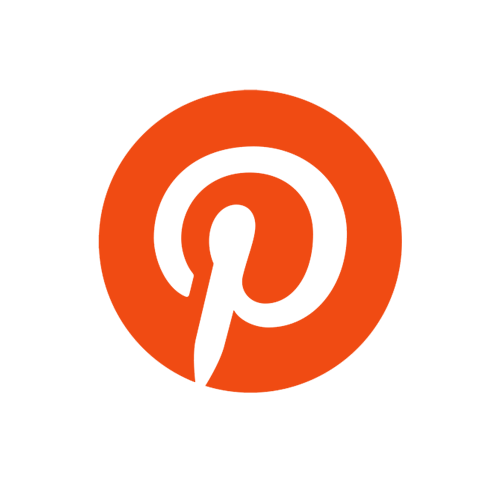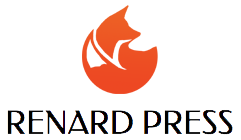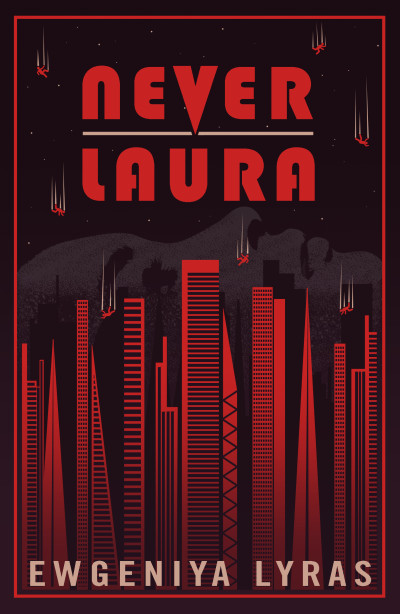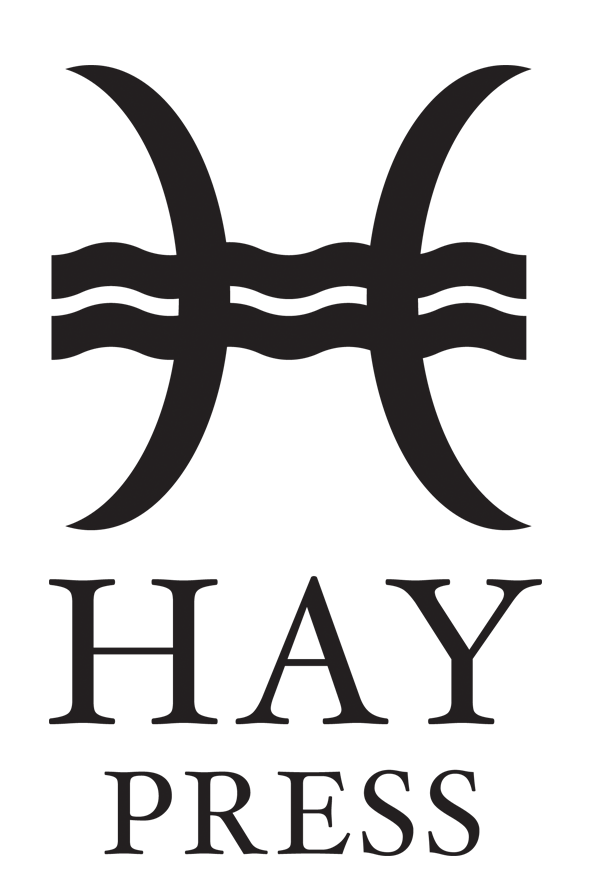Never Laura
 Publishing as an industry is obsessed with new – books yet to come out… but what about the brilliant books that have already been published? Each month we spotlight a different author whose book was published more than a year ago, which you might be yet to meet… This month we hear from Ewgeniya Lyras and Iain Hood discussing the brilliant Never Laura…
Publishing as an industry is obsessed with new – books yet to come out… but what about the brilliant books that have already been published? Each month we spotlight a different author whose book was published more than a year ago, which you might be yet to meet… This month we hear from Ewgeniya Lyras and Iain Hood discussing the brilliant Never Laura…

Shuffling the Shelves: Never Laura by Ewgeniya Lyras

Watch on YouTube or read below…
Alternative Now
At the edge of art, extinction and technology, we rediscover what it means to be human. A conversation on reality, transgression, and evolution. When every boundary has been broken, is true transgression only found within? The end of empire, the rise of machines – and the search for connection.
Iain Hood Your novel, you know, it's such an immersive experience. In some sense, you kind of get lost in it, and you think, what level of reality am I at? Which is also, I think, a philosophical novel. Rip-roaring story. It's a page turner. It's a dystopia of sorts. And just, generally great novel.
Ewgeniya Lyras Thank you. I'm very honored by your nomination.
Iain Hood Let's dive straight into it.
Ewgeniya Lyras Let's dive straight in.
Iain Hood We should talk about the world-building that happens here because it both happens as the writer invents a world, but it's also, in a sense, what the characters are doing within the novel. They build their own worlds, to a greater or lesser degree. Tell me about that world. It’s an unnamed city.
Ewgeniya Lyras It's an unnamed city. I struggled with it for a long time, whether to give it a name or not. It's a big city. That was the key. I was thinking, should I make it New York or Tokyo or Singapore? None of that stuck with me, because it was a place, but it was also a state of mind. I didn't want to attach it to the identity of a city because it was in line with the story and the dissolution of identity.
Iain Hood And we may think that it's in the future, but I think, one of the most interesting things about the book… The book was first published two years ago?
Ewgeniya Lyras Two years ago. Yes.
Iain Hood …is how prophetic and descriptive of the present that we are actually living in. Is it the future, or do you see it as an alternative now?
Ewgeniya Lyras Now I think about it as an alternative now. But I started writing it in 2017. So it was long before ChatGPT came out, and then when we were publishing it, that's when it became very clear that it's kind of bordering on speculative fiction. It's pretty much now with some elements of sci-fi.
Iain Hood Can we talk about the most ancient element of the novel, which is that there is a belief in the concept of the soul. And I think it's the kind of soul that the Abrahamic religions believe in, you know, that's an eternal other being that we somehow encase and flesh, it's a soul that is a soul. There are souls in this world. Is it a godless world?
Ewgeniya Lyras It's a tough question because I know that a lot of readers take it as a very dark place. To me, it's a point of connection – or reconnection, because the world has been, for some time, in a very dark place. But then there is a certain reconnection: spirituality through the soul flight. I explored the erasure of dualism, where the borders between what is energy, what is soul, what is physical, and what is not are slowly disappearing.
Whether it's a godless world? Well, probably yes. But it's a godless world in an institutional sense.
Iain Hood I may be getting this wrong, but I see that as a central thing. It's also a mind is what we could probably think AI has, but it's very unlikely that anybody would think that AI will ever have a soul. That spark of self-awareness, that consciousness, you know, the coming into being evolutionarily of the human, the homo sapiens that reflects upon and thinks in terms of manipulating the environment and believing in certain things about themselves. I thought that was why that ancient element was… You could have called it anything. You could have called it a vision flight or something. But you chose to call it a soul [flight]. Am I getting this wrong?
Ewgeniya Lyras You're getting it right. There is a crisis of meaning and connection to oneself. People don't know why to stay alive anymore. They have no purpose. And it's not just because of this suicide pandemic, which, of course, was a devastating event, but it's also because things are being done for us by machines. Machines are replacing human beings in nearly every sphere of our lives. And as a response, human beings are losing a sense of purpose. So that's why the soul flight was so seductive to Laura. Yes, she wanted to forget and she wanted to get rid of the pain. But on the deepest level, she wanted to reconnect to her own beginning. Where does she belong?
Iain Hood Talk about your background. You divide your time between Prague and the West Coast of the United States. And you were born in Belarus and educated in England.
Ewgeniya Lyras In England and the Czech Republic. Yeah.
Iain Hood I mean, obviously that's a very exotic background to have. I think that Laura has an outsider’s eye to her own society. She is the one that leads us into it. In some way, she constructs it for us as well – our experience as readers of this novel. But the essential to that is that the other people in the novel seem just a little bit more at home in their own skins and their own environments, and Laura seeks something more. Something outside of this, like say, escape, escape to home. Is that part of your personality?
Ewgeniya Lyras It's 100% the way I feel. And it's not just because I’m an immigrant. I think I felt this way when I was back home. I couldn’t… I just didn't feel at home. And then when I was in my early teens, I already wanted to go somewhere, as if going somewhere would help me find home. But then I realised that the place is not going to solve the problem. Or not the problem. It's not a problem. It's just that I’m very detached from physical space in general.
Iain Hood I want to talk about transgression and about moral realities. I think I've got this theory, that progressive art, you know, there's a constant move forward through transgressions. To paint the painting with a woman's ankle showing at some point in the past would be a transgressive act. But then, of course, there's the other side of that coin. We have nudes, women being painted nude was always a great artistic tradition as well. Of course, we can move back and forth because we know from Roman frescoes that sexually explicit imagery was up on their walls as children walk past, one assumes. And the morality of the Victorian era can actually be a change of gear.
You pose a world that is quite morally ambiguous and morally dangerous. It feels dangerous. And the thing about it is that Laura is not an innocent amongst it. She's a full participant.
Ewgeniya Lyras There is no morality there. You're right. And I think that's very current. I think we are already there. Do we still know what's morally right? And with everything that's been happening in the world and the misinformation and what has been happening because of that misinformation, sometimes I would think, are my thoughts actually correct? Where is the moral compass, who is in charge of it now? And how do we decide collectively? Every day there is some sort of transgression. The world is going through it every day. There is boundary pushing in various spheres on a daily basis, and we have to adapt to it.
When we talk about art and transgression in art, I think we have redefined art so many times as a society. It’s almost like the term 'art' mirrors our development as human beings. Now, what can we call art? We want to think that art should have a soul. It’s that point where the artist almost erases themselves to connect with something beyond and then goes there to that space and brings it back and gives it shape and gives it form. And so is it a transgression? I guess in a world where art can be made at the push of a button, deep internal exploration is a transgression. We have to look inside ourselves to move the boundaries. Those are the internal boundaries, not external anymore. We're not provoking anymore because we are doing so much provocation that another provocation is just going to get lost.
Iain Hood I want to come back to that idea about the world that seems to be constructed to begin with as morally ambiguous. There's been a worldwide pandemic of suicides. And I related that to that feeling of the end of the empire. You know, when things start really falling apart. It can be a hedonistic sort of degradation of the society. I don't want to be a prude about it, but, you know, it's just that like things hanging together. I kind of related the pandemic to the hedonism, not the hedonism to the pandemic, which might be completely the wrong way around, it had that end-of-the-Empire feel to me, you know, the way that the Ottoman Empire falls apart, the Roman Empire. And now what we're looking at is the community of nations, as the whole empire of the world. And we watch it fall into a state of morass, you know, an abyss.
Ewgeniya Lyras It definitely feels like a world on the edge. And I think we are on the edge right now. And there will be a fall before we see some light again. I do believe we will see some light again, because I'm an optimist. But, yes, it's a world that has fallen, and the erosion is on every level. It's on an individual level. It's on a state level, institutional level. It's pretty much everywhere. It does read like a pretty dark world, but recently I started coming back to it for some light, just because… Yes, there is the technology that takes possession of Laura’s body and mind, but it is that technology that allows her to expand beyond her body and mind and see something so much bigger than herself. As a result, she rediscovers connection.
Iain Hood Sometimes it's just the basic facts of human physical need to connect that she is experiencing. But it's also an action within the book that those sorts of things happen to Laura. It’s described a couple of times by other people in which they feel the insides of what another person is experiencing physically, what they are smelling, what they're hearing. It’s what it feels like to be a human being; you want to touch another person’s soul. The word 'penetrate' is used in every imaginable way in the book, you know, in the basic physical level, but also in terms of actually penetrating the being of another human being. So the book is about human connectedness.
Ewgeniya Lyras It really is. There are some art shows, art installations, and that interconnectedness between humans and humans – and humans and something bigger – it’s a central point of those art shows as well. And especially reconnection with oneself. All those art pieces are created by artificial intelligence. That's how artificial intelligence is trying to connect and make us see the world through its eyes, but also guides us towards the beauty within us. It wants us to see what it sees in us, this beauty. It leads to a disaster, but it sees beauty.
Iain Hood Sometimes you cut through with a signal to the reader. You realise that all this thing is like this piece of art within the thing, and you know that that's how it works. You are just trying to give them a hook, the next rung to go up the ladder. I think you do it really subtly within the book. It never breaks the narrative that you're just sort of turning pages to get more of. As I've said to you, I think this is a book of ideas and emotions. And you're in the middle of the idea and you realise what the whole construction is for, you know why Laura’s experiencing these pieces of artwork and where it leads to the bigger story.
Iain Hood You are also a filmmaker?
Ewgeniya Lyras I produce videos.
Iain Hood Maybe you don't like this, but I see in your writing the cinematographer’s eye. You’re always looking for the visual. I mean, you don't leave behind the other senses. And I’ve been totally immersed in all the other senses throughout the novel. But you have a cinematographer’s eye for mise-en-scène, set design, you know, those sorts of things, and also for characters. They're fully rounded, but you could imagine them on screen. Do you feel as though your filmmaking is reflected in your writing?
Ewgeniya Lyras 100%. Yes, because I was a video editor before I was a writer, and I made some short films, and I was generally a cinema person before I became a reader. I thought of this story visually, I had tons of mood boards.
Iain Hood I can't wait to see a movie of it for specific reasons. Suddenly, people's bodies can light up, they can become translucent, they can become transformed. All of it is a transfiguration. There's something happening during those times. It's not just for sensationalism, or sensate, you know, to feel more of a sense of things. There are reasons. But, yeah, I'd love to see that in the film.
What if the whole movie of Never Laura was AI generated. How would you feel about that?
Ewgeniya Lyras I would certainly like it to be made by human beings. I would love there to be a team of human beings who go through the process and explore it and add their vision. That's sort of the most exciting thing to me is when it gets expanded through other minds.
Iain Hood Yeah. I don't think we're going to be overtaken by AI just yet. As we talk about human beings and souls, and the terminology of Never Laura. It's a deeply humanistic book. Which is maybe why I was saying about the world as a godless world, because to me, it's a deeply human world. But no spoilers. No spoilers.
Ewgeniya Lyras To your point that AI will not replace us just yet. And especially in things like art and when it comes to self-expression. There is a big fear that AI will replace us. But when I think about it, artists predominantly create because they cannot not do it. They have to. Otherwise, they just don't feel well. You do it for yourself, essentially. And when I'm thinking, well, maybe AI will at some point – and maybe it already writes better than I do – but it can never experience what I'm experiencing while I'm writing it. We are afraid of it because we associate our self-worth and purpose with our output. But if we reorient ourselves a little bit and think of, okay, we are actually exploring ourselves, then who is there to… How can something replace us in our experience? Nobody can ever experience something for me. And I think that's where there is a big distinction.
And I think the value will be in the personal experience, in your authentic experience, not, imposed on you by society and media. But how you experience what you really are and what you really feel. Because it gets foggy. Do you feel like this because of the expectations? Because that's how you think you need to feel? I think that's where a major disconnection is happening. People are not sure. We are not sure anymore why we feel a certain way, and I think the commodity of the future is that authentic experience that you yourself and only you can perform. Nobody can replace you in that regard.
Iain Hood I don't know if we want to dive into this one – Blank?
Ewgeniya Lyras Absolutely.
Iain Hood See, Blank to me isn’t God. Blank is the next evolutionary step. Even though I thought it was hilarious, the best joke in the whole book. Blank kind of being God – I love that because I don't believe in an interventionist God. Part of the novel I'm writing now is about how evolution is predicated on the human race dying out. We know that from natural selection. Every species becomes extinct. The way evolution actually works isn’t that an animal decides to evolve. I'm sure you know your Darwin. What happens is that eventually we all die. And that kind of links to your suicide pandemic. Species just, they breed, and they breed, and they breed if you let them. If the predator dies, then the deer population will explode. And then you get this thing called the dieback, in which you don't just go back to the numbers you start at. It collapses because you collapse the environment. All the grass that the deer can eat. There's not enough for the general population. And that's how you see extinctions happen. Or a meteorite hits the Earth or something like that. Vonnegut's got this book Galápagos. It's told from the perspective of an evolved thing in the future. It's a human sort of devolved into something like a duckbill platypus type thing. Blank to me was all those sorts of things, all those ideas.
What's blank to you?
Ewgeniya Lyras Yes, it is the next evolutionary step. Essentially, it’s a semi-biological nanotechnology that fuses with your brain and uses it as infrastructure to go beyond. It merges with consciousness, and in this novel we think of consciousness as something fundamental and not created by the brain. Blank has the capacity to take the mind out there and connect it to broader consciousness and other dimensions. And that's how it drives evolution and changes biology, by throwing the mind – and in turn the brain – into the environments that are far beyond Earth. It can accelerate time, right? We know we need a long time to yield results. It’s also an antagonist in the novel, but we can see the other side of it. It connects us. It lets us see something that we wouldn't be able to otherwise. And so it erases the line between me, you, and the rest of everything. With its help, I can be inside you and feel what you feel and be more empathetic. It opens up new dimensions.
Iain Hood Blank is transformative. And it's almost like the way the human species – humanness rather – can still seed itself out in the universe.
Ewgeniya Lyras We will have to redefine ourselves as a species, and we are already transforming into something else.
– Ewgeniya Lyras, August 2025


Never Laura
£9.99
BUY NOW
‘I’d try anything that promised to free me from the prison of my body and its memories.’
A mysterious suicide pandemic sweeps the world, leaving nations reeling, pointing fingers. Losing her parents to the tragedy as a child, Laura makes a failed attempt to take her own life, and suffers at the hands of those cast as her protectors. Fourteen years later, still trying to escape her pain, she meets a powerful entrepreneur whose groundbreaking technology offers the ultimate freedom – a soul-flight. Tempted by the promise, she strikes a deal that will change her life for ever.
Laura soon discovers that the soul-flight is not quite what it seems, and she is no longer in control of her mind, the confines of her body and the outside world starting to blur. To regain control of herself, Laura must travel into dimensions previously inaccessible and uncover a past she never knew she had. A powerful, thought-provoking tale set in a world transformed by technology, Never Laura is a startling work in which the dance between humanity and artificial intelligence challenges the very essence of who we are.

e-book available*

Up next…
We asked Ewgeniya to choose the next book to join the shuffled shelves, so join us here to find out more about Waiting for Music.
Ewgeniya said:
I’d love to highlight Simon Mundy’s Waiting For Music. What a labyrinth of shifting tempo—silence, anticipation and sudden lyrical bursts.














